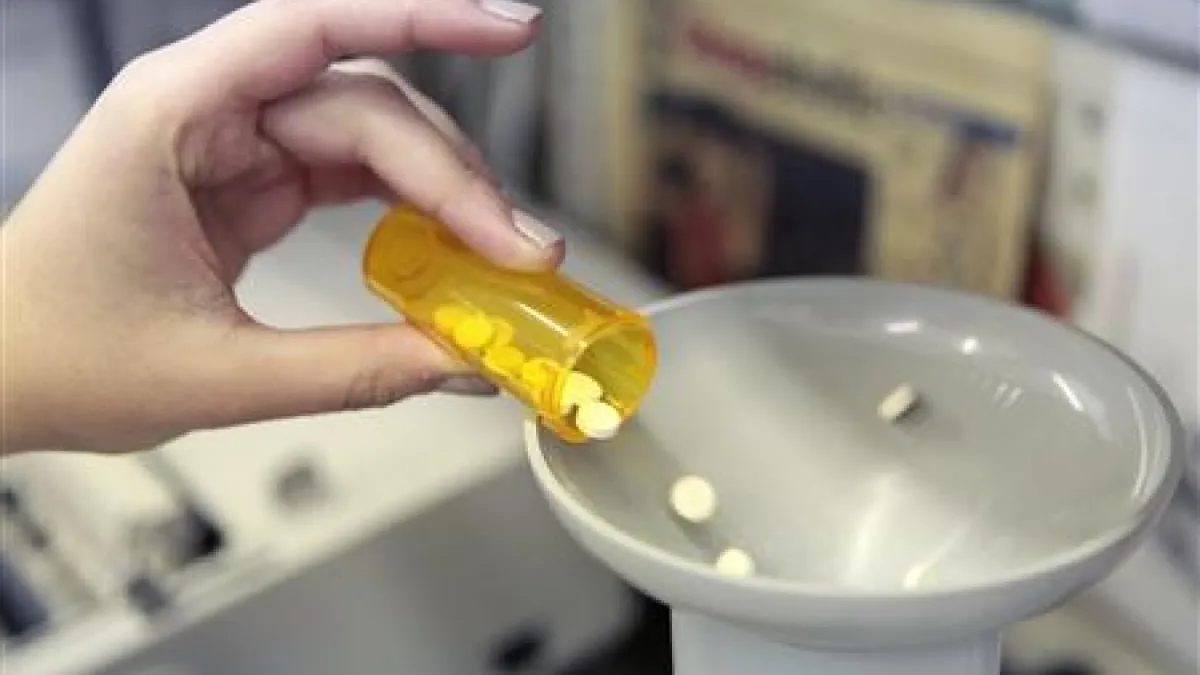
President Trump signed a sweeping executive order on Monday aimed at lowering prescription drug prices and "equalizing" costs here with those in other wealthy nations.
"The United States has less than five percent of the world's population and yet funds around three quarters of global pharmaceutical profits," Trump's order says. "This egregious imbalance is orchestrated through a purposeful scheme in which drug manufacturers deeply discount their products to access foreign markets, and subsidize that decrease through enormously high prices in the United States."
The president's plan calls for drugmakers to provide Americans with the "most-favored nation price" for their products - that is, it would push companies to charge the same prices domestically as they do in other developed countries. The order also aims to drive foreign drug prices higher through Trump's trade policy. If drug companies don't voluntarily work with the government to lower U.S. prices, they could face the threat of additional regulations, greater imports from other countries or legal action.
Still, the executive order has no teeth, citing no legal authority that would require drugmakers to act, and shares of drugmakers rose on Monday. "It was something of a win for the pharmaceutical industry, which had been bracing for a policy that would be much more damaging to its interests," said The New York Times' Margot Sanger-Katz and Rebecca Robbins.
Spreading the blame: In a rambling, hour-long morning news conference, Trump took some swipes at drug companies even as he said his criticisms were aimed more at foreign countries that push down prices. "I'm not knocking the drug companies. I'm really more knocking the countries," he said, before noting that the drug industry lobby is among the most powerful in Washington.
"Starting today, the United States will no longer subsidize the healthcare of foreign countries, which is what we were doing," Trump claimed. "We'll no longer tolerate profiteering and price gouging from Big Pharma," though he quickly reiterated that his complaint was really with foreign countries that set prices.
Trump said he thought drugmakers wouldn't be hurt much by his plan. "I think the health care companies should make pretty much the same money - I really don't believe they should be affected very much, because it's just a redistribution of wealth," he said. "Europe's going to have to pay little bit more, the rest of the world is going to have to pay a little but more, and America is going to pay a lot less."
Trump also told reporters that he had urged congressional Republican leaders to factor in drug cost savings as they score the costs and savings of their budget reconciliation bill - even though his drug-pricing order isn't reflected in the package. The White House reportedly had pressed for a "most-favored nation" provision in the GOP bill, but congressional Republicans rejected the idea.
Resistance ahead: The drug industry is expected to fight Trump's plan. The Pharmaceutical Research and Manufacturers of America (PhRMA), the industry's main lobbying group, said Trump is right to try to use trade negotiations to force foreign countries to "pay their fair share" for medicines. But it warned that the Trump plan could undercut drug company investments in American and might increase reliance on China. It also pointed a finger at middlemen in the U.S. system, including pharmacy benefit managers (PBMs).
"The U.S. is the only country in the world that lets PBMs, insurers and hospitals take 50% of every dollar spent on medicines. The amount going to middlemen often exceeds the price in Europe. Giving this money directly to patients will lower their medicine costs and significantly reduce the gap with European prices," PhRMA President and CEO Stephen J. Ubl said in a statement. "Importing foreign prices from socialist countries would be a bad deal for American patients and workers."
The bottom line: This is an extraordinary move by a Republican president, even if it is more of a request than an order - but Trump sought to do something similar in his first term and saw his efforts stymied.